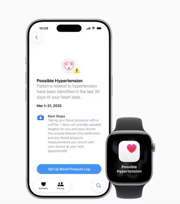Are Your Holiday Parties Damaging Your Heart? The Startling Truth Behind 'Holiday Heart Syndrome' and Alcohol!
By
Gian T
- Replies 2
As the festive season rolls around, it's not just the jingle bells that get hearts racing. The end-of-year celebrations often come with their own set of health concerns, particularly for those who indulge in a bit too much holiday cheer. While a glass of wine or a beer might seem like a harmless way to toast the season, excessive drinking can lead to a condition known as 'holiday heart syndrome', a term that might sound festive but is anything but a cause for celebration.
Holiday heart syndrome was first identified in 1978 when doctors in the United States observed a worrying trend. They noticed an increase in emergency department visits for atrial fibrillation – an irregular and often rapid heart rate – following weekends of heavy drinking, particularly after holiday celebrations. This condition can cause heart palpitations, breathlessness, and light-headedness, symptoms that are far from the holiday spirit.
But what exactly is atrial fibrillation, and why should it concern us? Atrial fibrillation, often abbreviated as AFib, is a condition characterised by an irregular heartbeat that can lead to blood clots, stroke, heart failure, and other heart-related complications. It's diagnosed with an electrocardiogram (ECG), which records the electrical activity of the heart, and is typically treated with medication or, in some cases, a defibrillator 'shock'.
While factors like high blood pressure and heart disease can trigger AFib, sometimes there's no clear cause. However, binge drinking has emerged as a significant contributor to the condition. A recent German study published in the European Heart Journal found that 5-10 per cent of otherwise healthy binge drinkers experienced alcohol-induced atrial fibrillation. This is particularly concerning for older individuals, as AFib in this demographic is a common cause of stroke and heart failure.
The long-term health consequences of AFib can be severe. The more episodes one experiences, the more the heart changes, increasing the vulnerability to further episodes. However, there is a silver lining. A 2019 study led by Professor Peter Kistler of the Baker Heart and Diabetes Institute in Melbourne demonstrated that abstaining from alcohol could significantly reduce the recurrence of AFib.
So, how does alcohol trigger this condition? The German study provided some insights. It followed volunteers who engaged in binge drinking and monitored their heart rates and rhythms. Interestingly, atrial fibrillation was more likely to occur during the 'hangover' period, 6 to 19 hours after drinking, rather than during the actual drinking session. This suggests that the suppression of the parasympathetic nervous system – which is responsible for relaxing the body – plays a critical role in the development of AFib. When this system is suppressed, the heart is more prone to beat irregularly.
After the initial hangover period, the body attempts to rebalance, which can lead to a slowed heart rate and changes in heart function. This 'rebound' effect can result in a reduction in the heart's squeezing function, leading to a feeling of being unwell as the heart is not performing optimally. This is why athletes are often advised against drinking during the season, as it can diminish cardiac performance.
The takeaway from this research is clear: the notion that alcohol is good for the heart is a myth, especially for those with electrical heart problems. National Australian guidelines recommend that healthy adults drink no more than ten standard drinks a week, and for those with heart arrhythmias, even less is advisable – up to three standard drinks a week, or ideally, none at all.
But there's another aspect to consider – the psychological effects of alcohol. 'Hangxiety', or hangover anxiety, can also be a byproduct of drinking, with up to 22 per cent of people reporting anxiety after consuming alcohol. Symptoms of anxiety, such as palpitations, can be mistaken for atrial fibrillation, making it challenging to distinguish between the two. If you're unsure, it's best to consult a doctor or seek emergency care, especially if you're experiencing severe symptoms like breathlessness or an uncontrollable heartbeat.
 As we raise our glasses to celebrate the holidays, it's essential to be mindful of the impact on our hearts. Moderation is key, and for those with existing heart conditions, caution is even more critical. Remember, the best gift you can give yourself and your loved ones is the gift of health. So, as you plan your holiday festivities, consider how you can celebrate in a way that keeps your heart merry and bright without the added risk of holiday heart syndrome.
As we raise our glasses to celebrate the holidays, it's essential to be mindful of the impact on our hearts. Moderation is key, and for those with existing heart conditions, caution is even more critical. Remember, the best gift you can give yourself and your loved ones is the gift of health. So, as you plan your holiday festivities, consider how you can celebrate in a way that keeps your heart merry and bright without the added risk of holiday heart syndrome.
Holiday heart syndrome was first identified in 1978 when doctors in the United States observed a worrying trend. They noticed an increase in emergency department visits for atrial fibrillation – an irregular and often rapid heart rate – following weekends of heavy drinking, particularly after holiday celebrations. This condition can cause heart palpitations, breathlessness, and light-headedness, symptoms that are far from the holiday spirit.
But what exactly is atrial fibrillation, and why should it concern us? Atrial fibrillation, often abbreviated as AFib, is a condition characterised by an irregular heartbeat that can lead to blood clots, stroke, heart failure, and other heart-related complications. It's diagnosed with an electrocardiogram (ECG), which records the electrical activity of the heart, and is typically treated with medication or, in some cases, a defibrillator 'shock'.
While factors like high blood pressure and heart disease can trigger AFib, sometimes there's no clear cause. However, binge drinking has emerged as a significant contributor to the condition. A recent German study published in the European Heart Journal found that 5-10 per cent of otherwise healthy binge drinkers experienced alcohol-induced atrial fibrillation. This is particularly concerning for older individuals, as AFib in this demographic is a common cause of stroke and heart failure.
The long-term health consequences of AFib can be severe. The more episodes one experiences, the more the heart changes, increasing the vulnerability to further episodes. However, there is a silver lining. A 2019 study led by Professor Peter Kistler of the Baker Heart and Diabetes Institute in Melbourne demonstrated that abstaining from alcohol could significantly reduce the recurrence of AFib.
So, how does alcohol trigger this condition? The German study provided some insights. It followed volunteers who engaged in binge drinking and monitored their heart rates and rhythms. Interestingly, atrial fibrillation was more likely to occur during the 'hangover' period, 6 to 19 hours after drinking, rather than during the actual drinking session. This suggests that the suppression of the parasympathetic nervous system – which is responsible for relaxing the body – plays a critical role in the development of AFib. When this system is suppressed, the heart is more prone to beat irregularly.
After the initial hangover period, the body attempts to rebalance, which can lead to a slowed heart rate and changes in heart function. This 'rebound' effect can result in a reduction in the heart's squeezing function, leading to a feeling of being unwell as the heart is not performing optimally. This is why athletes are often advised against drinking during the season, as it can diminish cardiac performance.
The takeaway from this research is clear: the notion that alcohol is good for the heart is a myth, especially for those with electrical heart problems. National Australian guidelines recommend that healthy adults drink no more than ten standard drinks a week, and for those with heart arrhythmias, even less is advisable – up to three standard drinks a week, or ideally, none at all.
But there's another aspect to consider – the psychological effects of alcohol. 'Hangxiety', or hangover anxiety, can also be a byproduct of drinking, with up to 22 per cent of people reporting anxiety after consuming alcohol. Symptoms of anxiety, such as palpitations, can be mistaken for atrial fibrillation, making it challenging to distinguish between the two. If you're unsure, it's best to consult a doctor or seek emergency care, especially if you're experiencing severe symptoms like breathlessness or an uncontrollable heartbeat.
Key Takeaways
- Holiday Heart Syndrome is a condition observed when binge drinking leads to atrial fibrillation, causing irregular and rapid heartbeats.
- A recent German study highlights the role of the parasympathetic nervous system being suppressed during the 'hangover' period, triggering atrial fibrillation.
- Professor Kistler's team found that after the initial hangover period, the cardiovascular system attempts to rebalance, with a slowed heart rate and altered heart function on MRI scans.
- Guidelines and expert advice suggest limiting alcohol consumption, especially for individuals with heart arrhythmia, with a recommendation of no more than ten standard drinks a week for healthy adults and less for those with heart conditions.








